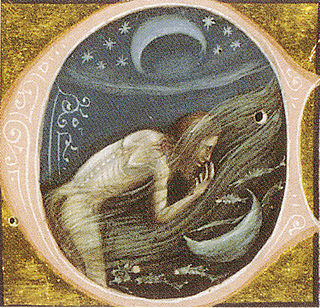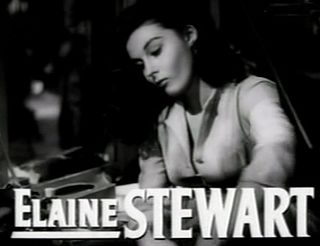
The picaresque novel is a genre of prose fiction. It depicts the adventures of a roguish but "appealing hero", usually of low social class, who lives by his wits in a corrupt society. Picaresque novels typically adopt the form of "an episodic prose narrative" with a realistic style. There are often some elements of comedy and satire. While the term "picaresque novel" was only coined in 1810, the picaresque novel originated in Imperial Rome during the 1st-2nd century CE, in particular with works such as the Satyricon of Petronius and later, and more particularly with authors such as Apuleius in Roman Numidia. It would see a revival in Spain during the Spanish Golden Age in 1554. Early Spanish contributors included Mateo Alemán and Francisco de Quevedo, who were influenced in particular by Apuleius' 2nd century work. Other notable ancient influences of the modern picaresque genre include Roman playwrights such as Plautus and Terence. The Golden Ass of Apuleius nevertheless remains, according to many scholars such as F. W. Chandler, A. Marasso, T. Somerville and T. Bodenmüller, the primary influence for the modern Picaresque genre. Subsequently, after the revival in Spain, the genre flourished throughout Europe for more than 200 years for the first time since the Roman period. It continues to influence modern literature.

Emad El-Din Mohamed Abdel Mena'em Fayed, commonly known as Dodi Fayed, was an Egyptian film producer and the eldest child of the businessman Mohamed Al-Fayed. He was romantically involved with Diana, Princess of Wales, when they both died in a car crash in Paris on 31 August 1997.
This article contains information about the literary events and publications of 1828.

The Hidden Fortress is a 1958 Japanese jidaigeki adventure film directed by Akira Kurosawa, with special effects by Eiji Tsuburaya. It tells the story of two peasants who agree to escort a man and a woman across enemy lines in return for gold without knowing that he is a general and the woman is a princess. The film stars Toshiro Mifune as General Makabe Rokurōta and Misa Uehara as Princess Yuki while the peasants, Tahei and Matashichi, are portrayed by Minoru Chiaki and Kamatari Fujiwara respectively.

Mumtaz Mahal was the empress consort of Mughal Empire from 1628 to 1631 as the chief consort of the fifth Mughal emperor, Shah Jahan. The Taj Mahal in Agra, often cited as one of the Wonders of the World, was commissioned by her husband to act as her tomb.

James Justinian Morier was a British diplomat and author noted for his novels about the Qajar dynasty in Iran, most famously for the Hajji Baba series. These were filmed in 1954.

John Derek was an American actor, director, screenwriter, producer and photographer. He appeared in such films as Knock on Any Door, All the King's Men, and Rogues of Sherwood Forest (1950).

John George Agar Jr. was an American film and television actor. He is best known for starring alongside John Wayne in the films Sands of Iwo Jima, Fort Apache, and She Wore a Yellow Ribbon. In his later career he was the star of B movies, such as Tarantula!, The Mole People, The Brain from Planet Arous, Revenge of the Creature, Flesh and the Spur and Hand of Death. He was the first husband of Shirley Temple.

Arabian Nights is a two-part 2000 miniseries, adapted by Peter Barnes from Sir Richard Francis Burton's translation of the medieval epic One Thousand and One Nights. Mili Avital and Dougray Scott star as Scheherazade and Shahryar respectively. Produced by Dyson Lovell and directed by Steve Barron, the serial was produced by Hallmark Entertainment and originally broadcast over two nights on 30 April and 1 May 2000 on BBC One in the United Kingdom and ABC in the United States.
Jaafar Modarres-Sadeghi is an Iranian novelist and editor.

Isma'il Yasin was an Egyptian comedy actor. He was known for his slapstick humor and has been compared to Charlie Chaplin. He began his acting career in 1939 with the film Khalaf El-Habayeb.
Operation Hajji Baba was a humanitarian airlift operation performed by the United States Air Force between 25 and 29 August 1952. The mission of the operation was to airlift Hajj pilgrims stranded in Beirut, Lebanon to Jeddah, Saudi Arabia before the closing of the gates to Mecca.

Rosemarie Bowe Stack was an American model, best known for her appearances in several films in the 1950s.

Elaine Stewart was an American actress and model.

The Dark Avenger is a 1955 British historical action adventure film directed by Henry Levin. The screenplay was written by Daniel B. Ullman. The film stars Errol Flynn, Joanne Dru and Peter Finch. The music score is by Cedric Thorpe Davie. It is also known as The Warriors in the United States, and had a working title of The Black Prince in the United Kingdom.

Mirza Abolhassan Khan Ilchi was an Iranian politician and diplomat who served as the Minister of Foreign Affairs twice, first from 1824 to 1834, and then again from 1838 until his death in 1845. He also served as the ambassador to Russia and Britain, and was the main Iranian delegate at the signing of the Golestan and Turkmenchay treaties with Russia in 1813 and 1828 respectively.
Paul Marion was an American actor, notable for roles in To Have and Have Not (1944), Mysterious Doctor Satan and Captain Midnight.
Merrill Gabriel Heatter was an American television producer and writer. He was best known for his collaboration with writer Bob Quigley for over 20 years and the formation of their production company Heatter-Quigley Productions in 1960. The company was responsible for the game shows Hollywood Squares and Gambit and the animated television series Wacky Races.

Indira Devi of Kapurthala, affectionately known as the Radio Princess, was an Indian socialite and princess, the eldest grandchild of Maharaja Jagatjit Singh of the princely state of Kapurthala in Punjab, British India. During the Second World War she was recruited as a political correspondent to George Orwell, for the India team of the BBC. There she became a regular broadcaster of the programme The Debate Continues from the House of Commons, and Hello Punjab, a programme in Hindustani for the British Indian Army. With Narayana Menon she hosted the Indian Service musical programmes.

The Adventures of Hajji Baba of Ispahan in England is an 1828 novel by the British traveller and writer James Justinian Morier. It is a sequel to his 1824 novel The Adventures of Hajji Baba of Ispahan. It followed despite protests from the Persian ambassador to London about the original. Morier presented it as an satire on Western Civilisation.















